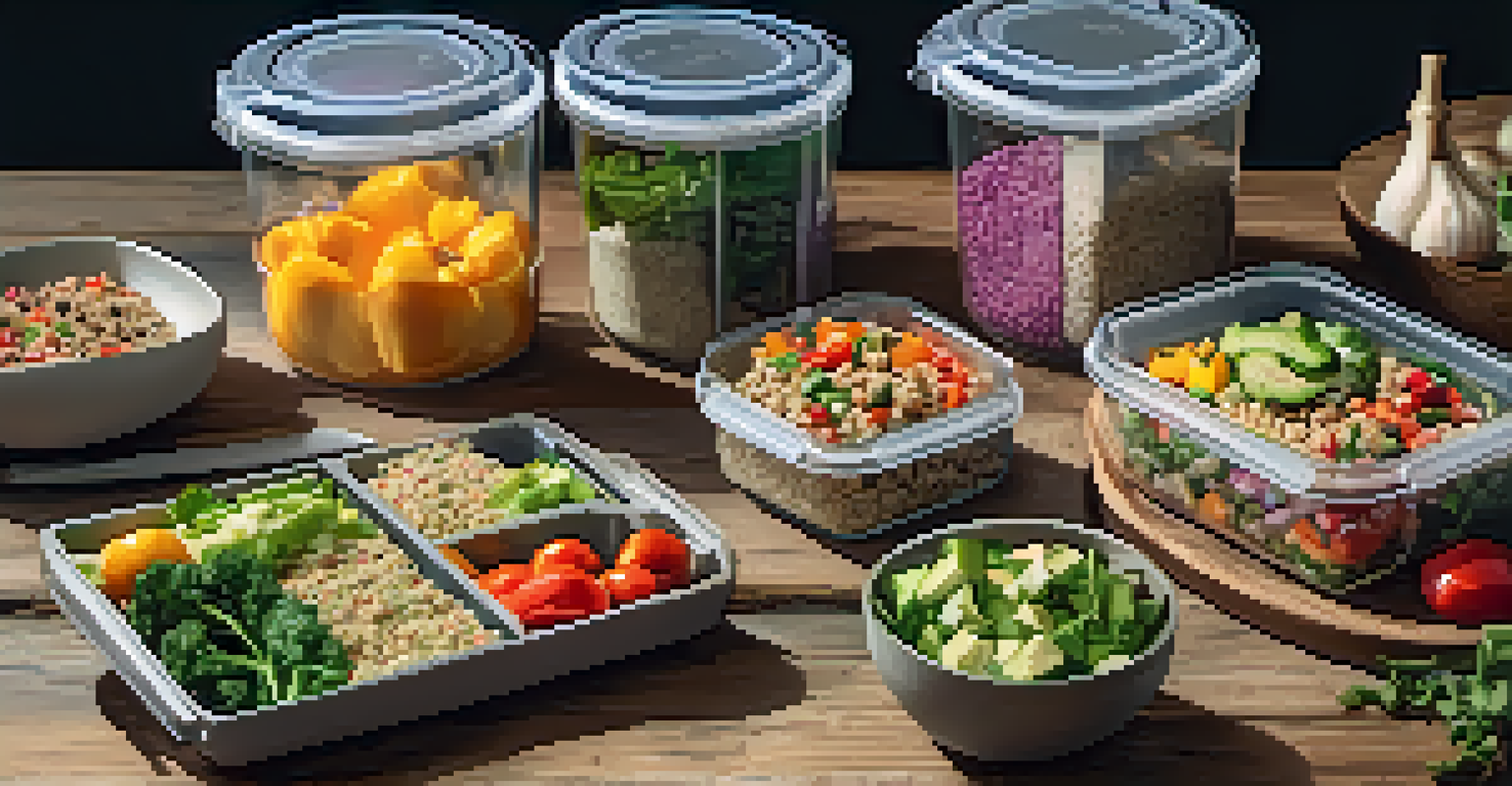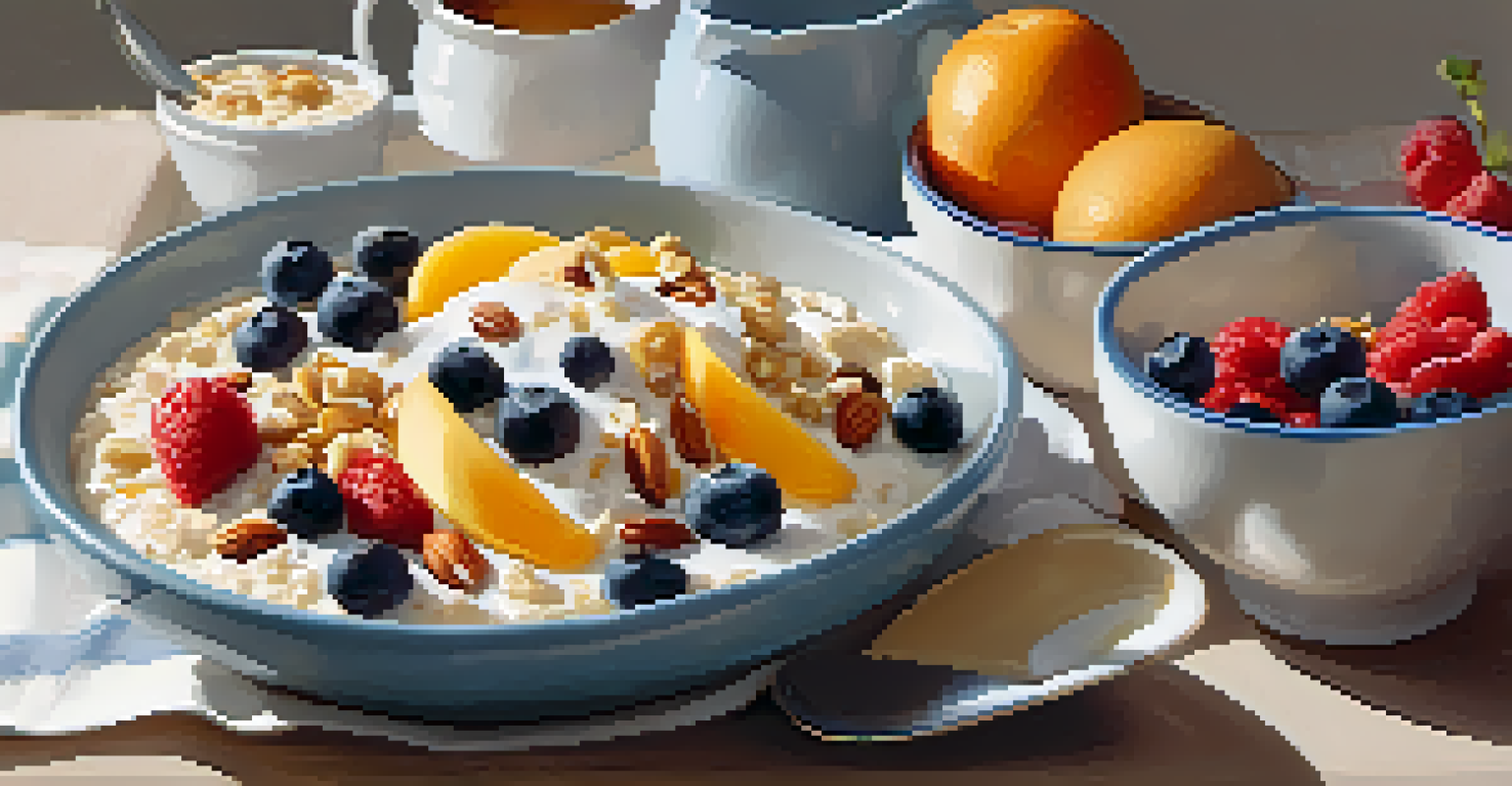Healthy Cooking on a Budget: Quick and Affordable Meals

Understanding Healthy Cooking on a Budget
Cooking healthy doesn't have to drain your wallet. In fact, with a little planning and creativity, you can whip up nutritious meals without overspending. The key is to focus on whole foods and seasonal ingredients that are often less expensive.
Eating healthy on a budget is not about deprivation; it's about making smart choices.
Think of it this way: when you buy in bulk or choose store brands, you're often getting the same quality for a fraction of the price. Plus, planning your meals around sales and what's in season can help you save even more while still eating well.
By changing your mindset and approach to cooking, you can enjoy delicious meals that not only taste great but also support your health and financial goals.
Smart Grocery Shopping Tips
The first step to healthy cooking on a budget is mastering grocery shopping. Make a list before you head to the store and stick to it to avoid impulse buys. Don't forget to check your pantry before shopping; you might already have ingredients you can use.

Buying fresh produce in bulk can save you money, but be sure to choose items that have a longer shelf life or can be frozen. Additionally, consider shopping at local farmers' markets or discount stores for fresh, affordable options.
Healthy meals on a budget
With planning and creativity, you can enjoy nutritious meals by focusing on whole foods and seasonal ingredients.
Finally, look for sales and coupons online or in-store to maximize your savings. Combining these strategies can make a significant difference in your grocery bill.
Meal Planning: The Key to Success
Meal planning is essential for healthy cooking on a budget. By taking some time each week to plan your meals, you can ensure that you’re using ingredients efficiently and reducing waste. This can also help you avoid those last-minute takeout temptations.
The best way to save money is to make a plan and stick to it.
Start by selecting a few recipes that use similar ingredients, which can help you buy in bulk and save money. For instance, if you buy a bag of spinach, use it in salads, smoothies, and omelets to get the most out of your purchase.
Don't forget to include leftovers in your plan! They can easily be repurposed into new meals, saving both time and money.
Quick, Healthy Breakfast Ideas
Breakfast doesn't have to be elaborate to be healthy and satisfying. Quick options like overnight oats or yogurt with fruit can be prepped in minutes. These meals are not only nutritious but also budget-friendly when you buy ingredients in bulk.
Consider making a big batch of egg muffins at the beginning of the week. Packed with veggies and protein, they can be a grab-and-go option for busy mornings. Plus, they freeze well, making them perfect for future meals.
Master grocery shopping
Creating a shopping list, buying in bulk, and seeking out sales can significantly reduce your grocery expenses.
Remember, starting your day with a healthy meal sets the tone for making better food choices throughout the day.
Budget-Friendly Lunch Solutions
When it comes to lunch, think about meals that can be made in advance and taken on the go. Salads, wraps, and grain bowls are perfect options that can be customized to include whatever ingredients you have on hand.
Prepare a big batch of quinoa or brown rice at the beginning of the week and use it as a base for different lunches. Add beans, veggies, and a simple dressing for a quick meal that’s both filling and nutritious.
Investing in some good containers can help keep your lunches fresh and make meal prep a breeze.
Simple and Affordable Dinner Recipes
Dinner can be one of the most challenging meals to prepare on a budget, but it doesn't have to be. Dishes like stir-fries or pasta can be made with affordable ingredients and are incredibly versatile. Use whatever vegetables you have on hand to create a delicious and healthy meal.
One-pot meals are also a lifesaver for quick dinners. Think of soups or stews that can be made in a single pot, allowing you to save both time and dishes. Plus, they often taste even better the next day.
Plan meals to reduce waste
Meal planning helps you use ingredients efficiently, avoid last-minute takeout, and repurpose leftovers into new meals.
Don't underestimate the power of frozen vegetables; they are often cheaper and just as nutritious as fresh ones, making them a great addition to your dinner repertoire.
Snacks That Won't Break the Bank
Healthy snacking is essential for keeping your energy levels up throughout the day, and it can be done on a budget. Consider preparing snacks like homemade trail mix, which combines nuts, seeds, and dried fruit. Buying these ingredients in bulk can save you money.
Another great option is veggie sticks paired with hummus. Carrots, celery, and bell peppers can be purchased for a low cost, and they make for crunchy, satisfying snacks that are good for you.

Remember, the key to healthy snacking is to plan ahead. Having ready-to-eat snacks on hand can prevent you from reaching for less healthy options when hunger strikes.